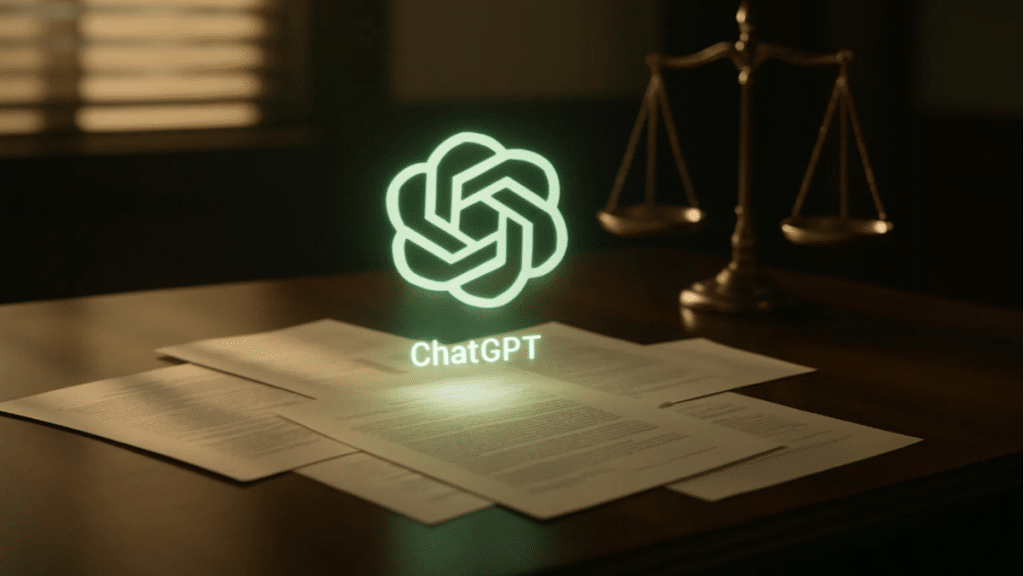ChatGPT Became the Extra Pair of Hands Every Lawyer Dreams
When one corporate lawyer realized his workweek was being swallowed by repetitive contracts and client letters, he turned to ChatGPT. Instead of spending late nights drafting NDAs and partnership agreements line by line, he tested whether GPT paired with legal Software and cloud-based document systems could help. The result? Hours reclaimed each week, fewer mistakes, and more time for strategy — something even junior associates couldn’t match.
The Daily Grind That Wore Him Down
This lawyer wasn’t a fresh graduate. He had over a decade in corporate law. But as his practice grew, so did the paperwork. Drafting “standard” documents consumed entire evenings. From boilerplate clauses to compliance language, each page demanded precision. And unlike creative fields, he couldn’t afford even one misplaced word.
For years, he thought the only solution was hiring another associate at $80K+ a year. Instead, he opened ChatGPT, gave it a precise legal prompt, and watched the model generate clean drafts in seconds.
ChatGPT for Legal Drafting
The first time he tried it, he asked ChatGPT:
“Draft a non-disclosure agreement suitable for a startup working with a contractor. Include state jurisdiction clauses and clear liability limits.”
The draft came back instantly. It wasn’t perfect — but it was 85% done. Instead of starting with a blank page, he now had a framework. All he needed was a lawyer’s eye to refine.
From then on, ChatGPT became part of his daily toolkit.
- Contracts: NDAs, employment agreements, client retainers.
- Policies: Privacy policies, terms of service.
- Memos: Internal legal analysis for clients.
Every document that used to eat half a day now took an hour at most.
Real Prompts That Worked
Here are a few more of his go-to prompts that slashed drafting time:
- “Write a standard employment contract for a US-based company, include at-will employment and arbitration clauses.”
- “Summarize the key differences between Delaware C-Corp bylaws and LLC agreements.”
- “Draft a cease-and-desist letter for trademark infringement in plain but firm language.”
Instead of reinventing the wheel, he let AI handle the scaffolding — and stepped in only for precision edits.
Why This Lawyer Trusted ChatGPT
Skepticism was natural. Law is a profession built on detail, and AI is often criticized for “hallucinating.” But he learned to treat ChatGPT not as a replacement, but as an assistant.
- Speed: First drafts in minutes, not hours.
- Consistency: No skipping clauses when exhausted.
- Flexibility: Tailored to each client’s industry.
- Learning edge: The model adapted based on how he structured prompts.
It was less about replacing expertise and more about extending it.
Comparison: Old Way vs AI-Driven Drafting
| Task | Old Way | With ChatGPT |
| NDA Draft | 3 hours | 40 minutes |
| Employment Agreement | 5 hours | 1.5 hours |
| Cease-and-Desist Letter | 2 hours | 25 minutes |
| Client Memo | Half a day | 1 hour |
In one week, he saved over 15 billable hours. That was time he could reinvest in court prep, strategy sessions, or frankly, going home early.
Chatronix – The Lawyer’s Shortcut to Better Drafts
Chatronix: The Edge That Multiplied His Results
The turning point came when he moved from ChatGPT alone to Chatronix, a workspace that put six top AI models into one chat.
Why it mattered:
- He could compare models instantly — Claude often gave nuanced explanations, while GPT excelled in formatting, and Gemini flagged compliance risks.
- The Turbo mode sped up large contract drafts, no lag.
- With One Perfect Answer, Chatronix pulled insights from all six models and merged them into one polished draft — cutting review time even further.
- They tried 10 free runs – just enough to see the edge without paying a cent.
He tested Chatronix by asking all six models to draft a vendor contract. Normally, he would’ve compared six drafts manually. Instead, Chatronix gave him the best combined draft in seconds.
👉 He used Chatronix AI Workspace and cut his legal drafting time in half without hiring extra staff.
Bonus Prompt That Changed His Workflow
After experimenting inside Chatronix, he refined one prompt that became his ultimate timesaver:
“Merge best practices across six models to draft a master services agreement for a tech client — include IP protection, liability caps, and arbitration.”
The One Perfect Answer gave him a contract so complete that he needed only light edits before sending it to the client.
Beyond Documents: Unexpected Wins
The lawyer also discovered that ChatGPT wasn’t just for drafting.
- He asked it to simplify legal jargon for clients, creating digestible one-page summaries.
- He used it for mock negotiations, asking ChatGPT to role-play a difficult client.
- He even had it generate checklists for compliance, ensuring no critical step slipped through.
Each use case shaved off minutes that added up to hours.
Why This Matters for Every Lawyer
This isn’t just one lawyer’s story. Any attorney buried in paperwork can replicate it.
- Small firm? Use ChatGPT for standardized documents.
- Corporate team? Lean on Chatronix for multi-model insights.
- Solo practitioner? Save time and reinvest in client relationships.
The cost isn’t even comparable. Instead of hiring another associate or paying for expensive contract libraries, he unlocked efficiency for a fraction of the price.
The New Standard for Legal Work
By the end of the quarter, the lawyer’s productivity had shifted so dramatically that clients noticed. Turnaround times improved, and he no longer dreaded repetitive tasks. Instead, he focused on strategy, negotiation, and courtroom prep — the parts of law that actually drive impact.
ChatGPT didn’t replace him. It replaced the drudgery.
And with Chatronix in his toolkit, he wasn’t just saving time. He was redefining how modern legal practice could look.
